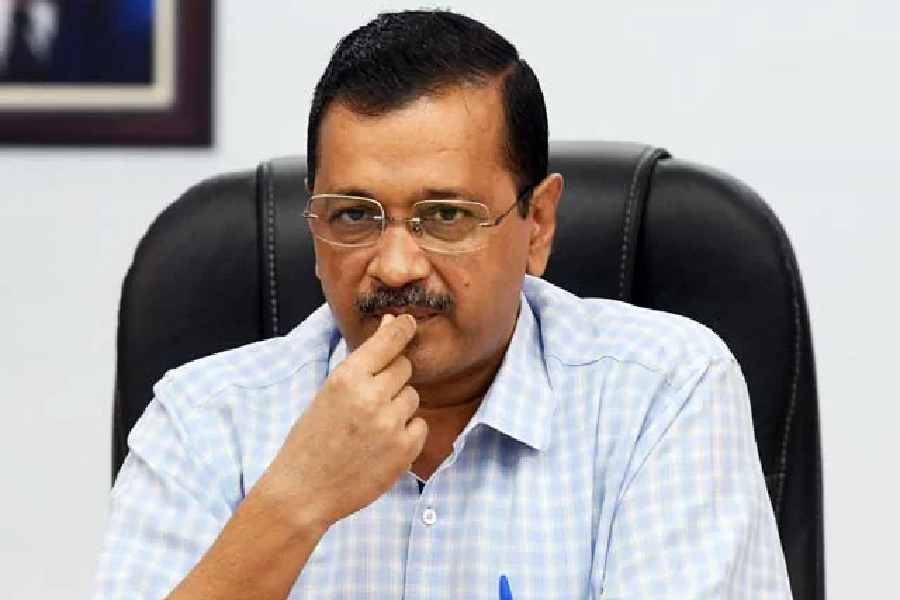The Aam Aadmi Party’s assertion that chief minister Arvind Kejriwal would continue to govern Delhi from inside jail threatens to create an unprecedented situation that neither constitutional nor statutory law provides a ready answer to.
The possibility strengthened on Friday after Kejriwal, arrested on Thursday night by the Enforcement Directorate, withdrew from the Supreme Court his plea for bail and the quashing of the FIR and was remanded till March 28 by the trial court.
Kejriwal’s move seemed tactical. Dismissal of his petitions by the apex court could have foreclosed any relief from lower courts.
Also, earlier in the day, the Supreme Court had refused to entertain the bail plea of BRS leader K. Kavitha, a co-accused of Kejriwal in the ED case relating to Delhi’s now-scrapped excise policy, and asked her to go to the trial court.
With Kejriwal’s penchant for drama, the move appears to carry a whiff of political tactic, too: ruling from behind bars would embarrass the Centre and generate dramatic headlines.
Such an eventuality would need makeshift infrastructure to be set up inside jail, with a bevy of bureaucrats forced to visit him in Tihar every day to submit files and discuss administrative matters, although the prison manual provides for no such protocol.
If Kejriwal chooses this option, it might raise questions of constitutional propriety and tempt the Centre to impose President’s rule in Delhi, a decision likely to be hugely controversial in the run-up to the general election.
Article 239-AB of the Constitution says President’s rule can be imposed in Delhi if the President, “on receipt of a report from the lieutenant governor or otherwise is satisfied” that the situation precludes the National Capital Territory being administered under Article 239-AA (special provisions governing Delhi), and that President’s rule is necessary for “proper administration” of the NCT.
In January this year, Jharkhand chief minister Hemant Soren of the JMM had resigned after the ED arrested him in a money-laundering case.
However, while AAP minister Atishi is currently handling the responsibilities of Delhi chief minister with help from fellow minister Saurabh Bharadwaj, the party has clarified that Kejriwal is determined to govern from jail.
Kejriwal’s legal team, led by senior advocate Abhishek Singhvi, had burnt the midnight oil on Thursday in an unsuccessful attempt to get a nocturnal hearing and have his arrest quashed. It then sought an urgent hearing on Friday.
However, Singhvi, after getting permission from Chief Justice D.Y. Chandrachud in the morning for urgent listing of the matter before a special bench of Justices Sanjiv Khanna, M.M. Sundresh and Bela M. Trivedi, abruptly withdrew the plea in the afternoon.
Singhvi told the bench that Kejriwal wanted to contest the ED’s remand application before the special PMLA court. The top court granted the plea.
The bench headed by Justice Khanna dismissed the bail plea of Kavitha, daughter of former Telangana chief minister K. Chandrashekar Rao, saying she could not come directly to the Supreme Court for relief merely because she was a politician.










